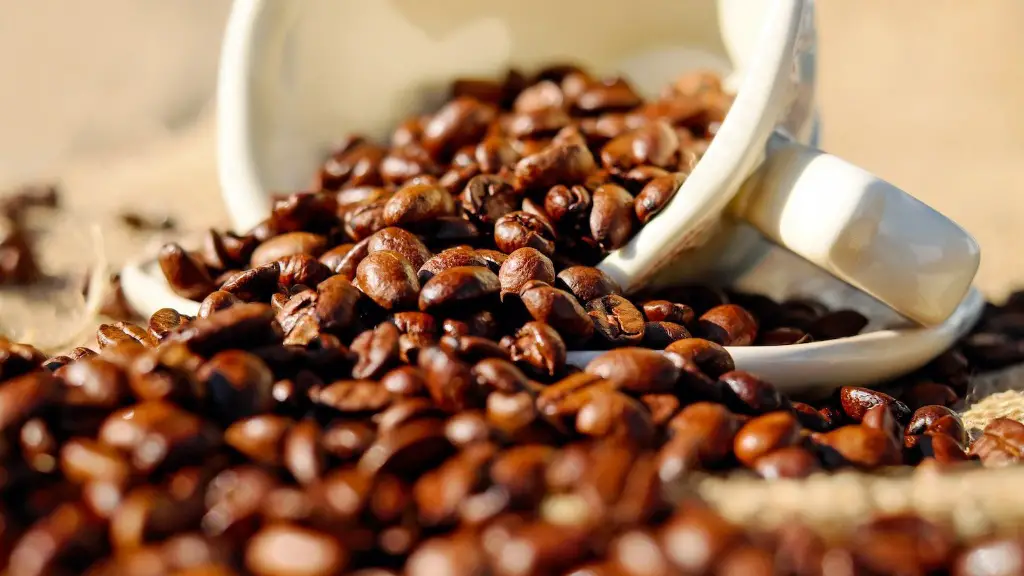In the UK, coffee consumption is increasing at a rapid pace, driven by the increasing popularity of artisanal coffeehouses and the emergence of specialty roasters. The presence of modern coffeehouses can be seen everywhere from city centres, shopping malls, and university towns to small suburban areas. Coffee consumption in the UK is now almost on par with the US, where the consumption of coffee is a defining part of the culture.
The UK is the second-largest consumer of coffee in Europe, with the average UK consumer drinking an estimated 70 liters of coffee in a year. The average price of an espresso-based coffee in the UK is £2.17 and an instant coffee with milk costs around £1.42, with an average of around £85 spent on coffee annually.
Recent research has indicated that the majority of coffee drinkers in the UK are aged between 25 and 34 and the majority of caffeine-lovers can be found in the South-East of England. London in particular has a thriving coffee culture, with many speciality coffee shops in operation. In the younger age groups, coffee tends to become a part of life around the age of 18, when students want to stay awake during lectures.
Some experts suggest that the rise in coffee consumption in the UK is largely linked to the convenience of takeaway outlets and the increasing popularity of seasonal beverages, such as pumpkin-spiced lattes and frappuccinos. Coffee is no longer considered an occasional indulgence, but an everyday necessity for people who rely on caffeine to get them through their day.
Coffee has also become a social phenomenon, creating a sense of connection and community among coffee lovers. The coffee-drinking culture has greatly increased with the introduction of specialist coffee shops and roasteries, making coffee not just a beverage but an experience in itself. People meet to chat over coffee, businesses plan over coffee, and couples flLockhurst baristas have seen an increase in couples enjoying each other’s company over coffee in the morning.
The coffee industry has risen steadily in recent years, with many factors, such as environmental concerns, fueling the trend. Specialty coffee shops have made sustainability a priority by using compostable cups and offering a variety of specialty blends. People are also becoming more educated about their coffee, which has led to a higher demand for quality coffee beans. Additionally, the emergence of ‘third wave’ roasters, such as Union Hand-Roasted, has raised the bar for coffee drinking in the UK.
Effect of Brexit on Coffee Drinking
The Brexit vote could have a significant impact on the coffee industry in the UK, as the country is part of the European Union’s Common Agricultural Policy (CAP). It has been estimated that British coffee drinkers could face steeper prices for their daily cup, as the cost of import tariffs will likely be passed onto consumers. The rise in coffee prices could result in a decrease in coffee consumption in the UK, as many people could opt to switch to cheaper alternatives.
However, the impact of Brexit on coffee consumption may be offset by the introduction of new opportunities for British coffee businesses. For example, some specialty coffee producers may be able to avoid tariffs by sourcing coffee beans from non-EU countries. In addition, the ‘third wave’ roasters such as Union Hand-Roasted could benefit from an increase in demand for their premium beans, as coffee quality becomes a greater priority in the post-Brexit UK.
Environmental Impact of Coffee Consumption
The production and consumption of coffee has a significant environmental impact. Coffee production requires large amounts of water and energy, as well as the use of various pesticides and fertilizers. The transportation of coffee beans also has a significant environmental impact, as many countries must import their coffee from abroad. Additionally, the use of disposable coffee cups also contributes to environmental pollution, as many cannot be recycled.
However, many UK-based coffee businesses are now taking steps to reduce their environmental impact. For example, some independent coffee shops are reducing their water use and offering biodegradable cups. There is also growing focus on sustainable sourcing of coffee beans, and an increasing number of roasters are actively seeking out ethically sourced beans. Additionally, some larger companies such as Starbucks are introducing pioneering recycling initiatives.
The Shift Towards Home Brewing
Despite the increasing popularity of specialty coffee shops, many adults in the UK are now turning back to brewing coffee in their own homes. This is largely due to the increased availability of innovations such as pour-over brewers, cold-brew kits, and more. Additionally, more adults are recognizing the health benefits of coffee, such as the high antioxidant content and the potential cognitive benefits, leading to an increase in home-brewed coffee consumption.
What’s more, home-brewing can be significantly cheaper than buying a cup at a specialty coffee shop, making it an attractive option for those on a budget. The emergence of modern home-brewing kits and gadgets has also made home-brewing accessible to those with limited cooking experience. The economic, environmental, and health benefits of home-brewing all contribute to its increasing popularity in the UK.
Health Benefits of Coffee
Drinking coffee can provide a number of health benefits, due to its high concentration of antioxidants, which are linked to reducing inflammation and improving cognitive functioning. In addition, research has suggested that coffee can help with weight management, as it helps to regulate appetite and can help to increase metabolism. Coffee can also provide energy, making it a great choice for those with busy lifestyles.
When it comes to health benefits, it’s important to remember that moderation is key. Drinking too much coffee can lead to negative side effects, such as increased anxiety, restlessness, and headaches. Additionally, some individuals can experience adverse reactions to coffee, such as an increase in heart rate or a decrease in appetite.
The Future of Coffee Drinking in the UK
As coffee consumption in the UK continues to increase, many coffee businesses are responding to the changing trends. Specialty coffee shops are focusing on quality and sustainability, while chain coffee shops are branching out into speciality coffee and introducing innovative packaging solutions. At home, coffee lovers can explore a variety of coffee-making gadgets and experiment with different coffee blends.
Overall, coffee culture continues to evolve in the UK, with more coffee drinkers becoming aware of the health benefits, environmental considerations, and the economic impact of their daily caffeine fix. With more coffee brands and roasteries emerging, the UK is slowly turning into a coffee-drinking nation with an appreciation for the art and science of coffee.




